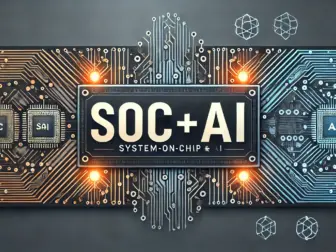Tag - AI chips
AI and Machine Learning, Blog , January 9, 2025 , AI chips, AI computing, artificial intelligence hardware, high-performance computing, low-power chips, SoC
Revolutionizing Technology: The Power of AI Chips
AI chips, also known as artificial intelligence chips, are transforming the landscape of technology. These specialized processors are designed to specifically handle the complex calculations and data processing required for AI tasks. With the rapid advancement of artificial intelligence, the demand for more powerful and efficient AI chips has skyrocketed.
One of the key benefits of AI chips is their ability to accelerate the performance of AI algorithms. Traditional CPUs are not optimized for the parallel processing tasks that AI algorithms require, leading to slower execution times and higher energy consumption. AI chips, on the other hand, are designed with parallel processing in mind, allowing them to perform AI tasks much faster and with less power.
Another advantage of AI chips is their ability to handle massive amounts of data. AI algorithms rely on vast datasets to train and improve their performance, which can quickly overwhelm traditional processors. AI chips have specialized architectures and memory systems that can efficiently manage and process large datasets, making them ideal for AI applications that require processing huge amounts of information.
Furthermore, AI chips are also more energy-efficient than traditional processors. The parallel processing architecture of AI chips allows them to perform computations more efficiently, reducing the amount of power required to run AI tasks. This energy efficiency is crucial for applications like autonomous vehicles and edge computing, where power consumption needs to be minimized.
The impact of AI chips on various industries is profound. In healthcare, AI chips are being used to analyze medical images, diagnose diseases, and personalize treatment plans. In finance, AI chips are helping to detect fraud, optimize trading strategies, and automate customer service. In manufacturing, AI chips are improving quality control, predictive maintenance, and supply chain management.
The future of technology is increasingly reliant on AI chips. As artificial intelligence continues to advance and permeate every aspect of our lives, the demand for more powerful and efficient AI chips will only grow. Companies like NVIDIA, Intel, and AMD are investing heavily in AI chip development, pushing the boundaries of what is possible with artificial intelligence.
In conclusion, AI chips are revolutionizing technology by providing the processing power, efficiency, and scalability needed for advanced AI applications. As the demand for AI continues to rise, the importance of AI chips in driving innovation and progress cannot be overstated. The power of AI chips is reshaping the way we think about technology and opening up new possibilities for the future.

